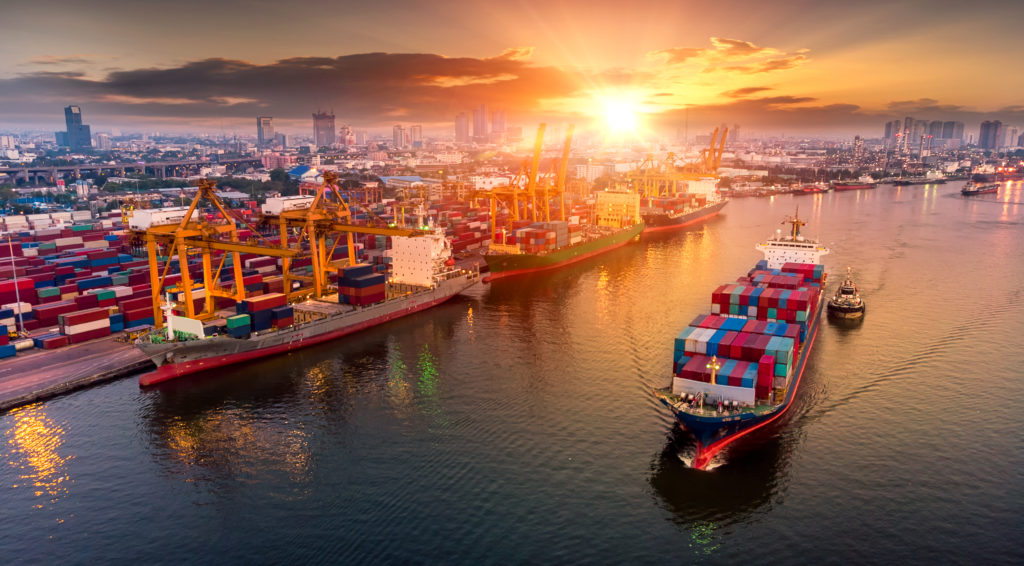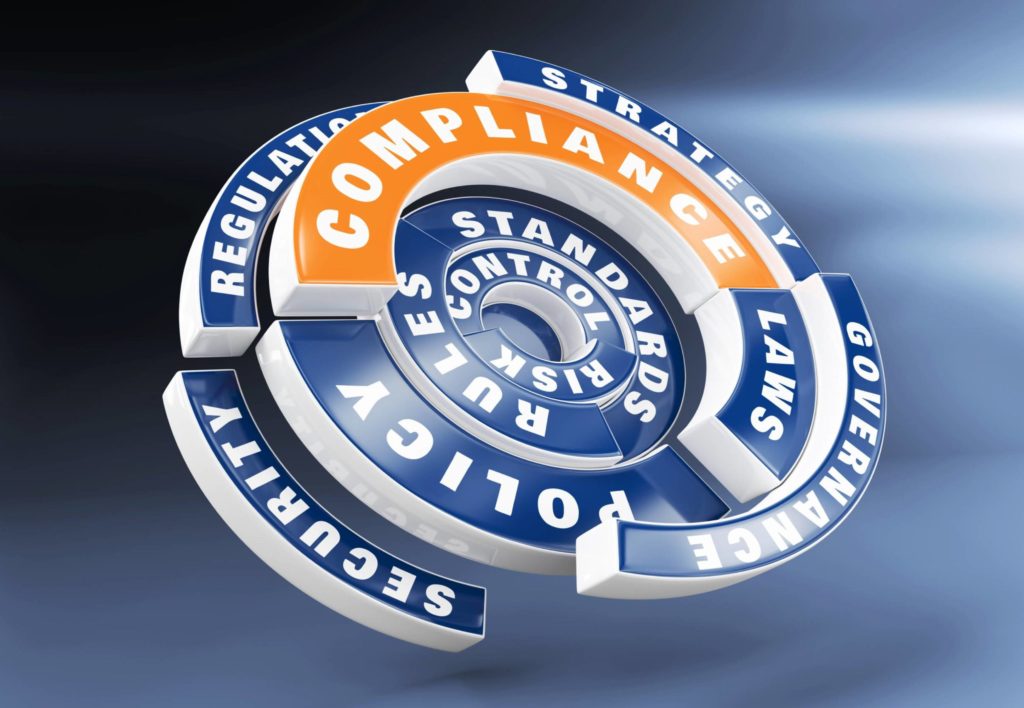Reconciliation in ACE Entry Summary
Reconciliation in ACE Entry Summary
What is Reconciliation in ACE Entry Summary
The reconciliation process known as the Reconciliation Prototype allows importers to file their entry summaries using the best available information they have on file and electronically “flag” estimated elements, with the mutual understanding that CBP will receive the actual information at a later date. Importers then provide the corrected information on a new type of entry called a Reconciliation. Reconciliation allows an importer to revise certain elements of an entry summary that were undeterminable at the time the merchandise was entered, such as, value, 9802, classification, and FTA.
All importers are automatically eligible for participation in the ACE Reconciliation Prototype as long as they have a valid continuous bond and a valid reconciliation bond rider on file for each importer of record number that wishes to participate in the ACE Reconciliation Prototype (including the two-digit suffix). Adequate bond coverage must exist for Reconciliation. Participants must file the applicable underlying entry summary and Reconciliation electronically via the Electronic Data Interchange (EDI). Reconciliation is commonly known as Recon.
In-Depth Coverage: Customs Valuation
Entry Summary Eligibility
The following entry types are eligible for Reconciliation under this prototype:
- Entry type 01: Free and dutiable formal consumption entries.
- Entry type 02: Quota/Visa consumption entries.
- Entry type 06: Foreign Trade Zone (FTZ) consumption entries.
Entries containing merchandise subject to quota may be reconciled for all issues except classification. FTZ entries with Anti-dumping/Countervailing Duty (AD/CVD) merchandise are not currently eligible for reconciliation under this prototype. In addition, if an FTZ entry has NAFTA/US-CFTA (or certain other eligible free trade agreement) issues, the importer must ensure that the product underwent no additional processing to make it qualify for NAFTA/US- CFTA (or certain other eligible free trade agreements). That is, the product must have qualified for NAFTA/US-CFTA (or certain other eligible free trade agreements) in the same condition as the time it entered the FTZ.
Entry summaries may be flagged for any of the issues listed below or any combination of the four:
- Value: This Reconciliation flag is open to all value issues (assists, royalties, computed value, and any other factors affecting CBP valuation, such as indirect payments).
- 9802: Subheadings 9802.00.60-9802.00.90, permits for a reduced duty treatment for the value of components manufactured in the U.S. and assembled abroad. The focus is on the value aspect of 9802, from estimates to actual figures.
- Classification: This flag is eligible for Reconciliation only when the following issues have been established; pending administration ruling (including pre-classification rulings), protest, and pending a court action.
- 520(d): NAFTA/FTA and certain other eligible Free Trade Agreements. This flag is subject to the obligations of 19 USC 1520(d). The importer must possess a valid certificate of origin when making a NAFTA/FTA claim and present it to CBP upon request.
Participation Eligibility
All participation eligibility indicators for importer of record accounts will default to “Yes.” An application to request participation will no longer be required. In ACE, all importer of record numbers will be flagged as eligible to participate in Reconciliation. If an importer exhibits misconduct, CBP retains the right to revoke participation and set their Reconciliation participation eligibility indicator to “No.” In addition, the importer is still required to secure and have on file in ACE a Reconciliation Bond Rider.
Time for Filing
FTA/NAFTA:
- Twelve (12) months from the date of importation of the oldest entry summary flagged.
Value/Classification/9802:
-
Twenty-one (21) months from the date of entry summary of the oldest entry summary flagged.
No extensions will be allowed on the deadlines for filing Reconciliations.
For more information about reconciliation, please refer to the CBP website:
Quick Link To U.S. Customs & Import Requirements
Customs Clearance and Import Requirements
- Entry of Imported Merchandise
- What is Section 321 Entry?
- What is Automated Commercial Environment (ACE)
- What is an Automated Broker Interface (ABI)?
- Who is Ultimate Consignee?
- What is Non-Resident Importer Program?
- Country of Origin of Imported Merchandise
- What is the Country of Assembly?
- What is the FDA's Country of Manufacture?
- Marking of Country of Origin on U.S. Imports
- What is Customs Bond?
- Reconciliation Prototype and Bond Rider
- Who Needs a Customs Broker?
- What is Customs Ruling Program?
- Classification of Imported Goods
- How is imported merchandise appraised?
- What are Import Quotas?
- What are Trade Remedy Duties?
- Antidumping Duty (AD) and Countervailing Duty (CVD)
- What is Foreign Trade Zone (FTZ)?
- What is Importer Security Filing (ISF)?
- What is Temporary Importation under Bond (TIB)
- What is In-Bond Process?
FDA-Regulated Products and Import Requirements
- What is Food Safety Modernization Act (FSMA)?
- Prior Notice of Imported Foods
- Food Facility Registration
- Risk-Based Preventive Controls for Human Food
- Risk-Based Preventive Control for Animal Food
- Standards for the Growing, Harvesting, Packing, and Holding of Produce for Human Consumption
- What is Foreign Supplier Verification Program (FSVP)?
- Protect Food against Intentional Adulteration
- FDA Regulated Product in Foreign Trade Zone (FTZ)
- Entry Review Process for FDA Regulated Products
- Country of Origin VS Country of Manufacture
- Foods Regulated by FDA or USDA: What is the Difference?
- Label and Labeling Claims for Conventional Food and Dietary Supplements
- What is USDA Country of Origin Labeling (COOL)?
- Import for Export of FDA Regulated Products
- FDA Regulated Products in Personal Baggage or Sending by Mail or Courier
- International Mail Facility (IMF) and FDA Regulation
- Importing Biological Product Regulated by CBER
- Importing Cosmetics and Voluntary Cosmetic Registration Program (VCRP)
- Importing Drugs into the U.S.
- Importing OTC Drugs into the U.S.
- Importing Veterinary Drugs into the U.S.
- Importing Tobacco Products into the U.S.
- Importing Medical Devices into the U.S
- Importing Food Products into he U.S.
- Importing Radiation-Emitting Products into the U.S.
Guidance on customs & logistics solution for traditional and e-commerce importers and exporters
Importer Security Filing (ISF)
An ISF is required when cargo (ocean only) laden on vessel at a foreign port is destined for shipment to the U.S. Under ISF rule, some importing information and details regarding cargo must be transmitted to the CBP at least 24 hours before goods are loaded onto the vessel.
Customs Clearance
All goods imported into the U.S. are required to be declared to CBP. Our customs broker will help you stay in compliance with customs laws and regulations and clear your goods quickly and efficiently with our electronic Automated Commercial Environment (ACE) and Automated Broker Interface (ABI) Single Window System.
Freight Forwarding
Looking for a freight forwarding partner? To move your cargo from its current location through customs to its final destination we will partner with you to find the best way for your business. Whatever your transportation, logistics or customs clearance needs, we will do our best to customize a solution for your needs.
Warehousing & Distribution
Our warehouse facility offers great potential for serving as a regional hub with over 145,000 SF storage capacity close to Los Angeles Airport & Los Angeles/Long Beach Sea port. With our extensive experience in freight services, your import/export cargo will be handled quickly and effectively.
Section 321 Entry
Section 321 entry allows importing free of duty and tax for shipments imported by one person on one day having a fair retail value in the country of shipment not more than $800. We provide our resident and non-resident clients with dedicated ACE eManifest solutions for Section 321 entry of all modes of transportation.
E-Commerce
The Internet has made it easy to find and purchase items from almost anywhere in the world. Our e-commerce experts will help you find the right solution for your international transportation, customs clearance, and delivery to your final destination. We also provide value-added repackaging, warehousing and distribution services.
Non-resident Importer Program
If you want to sell your products in U.S. marketplaces, but you are a business owner located outside of the U.S. and do not have an entity or presence in the U.S., you need to be established as a Foreign Importer of Record before your products can be imported into the U.S. We can help you.
Design your own logistics
To move your cargo from its current location through customs to its final destination we will partner with you to find the best way for your business.





















